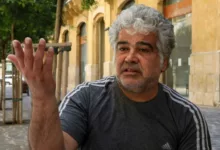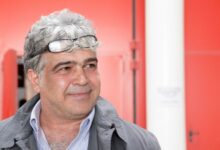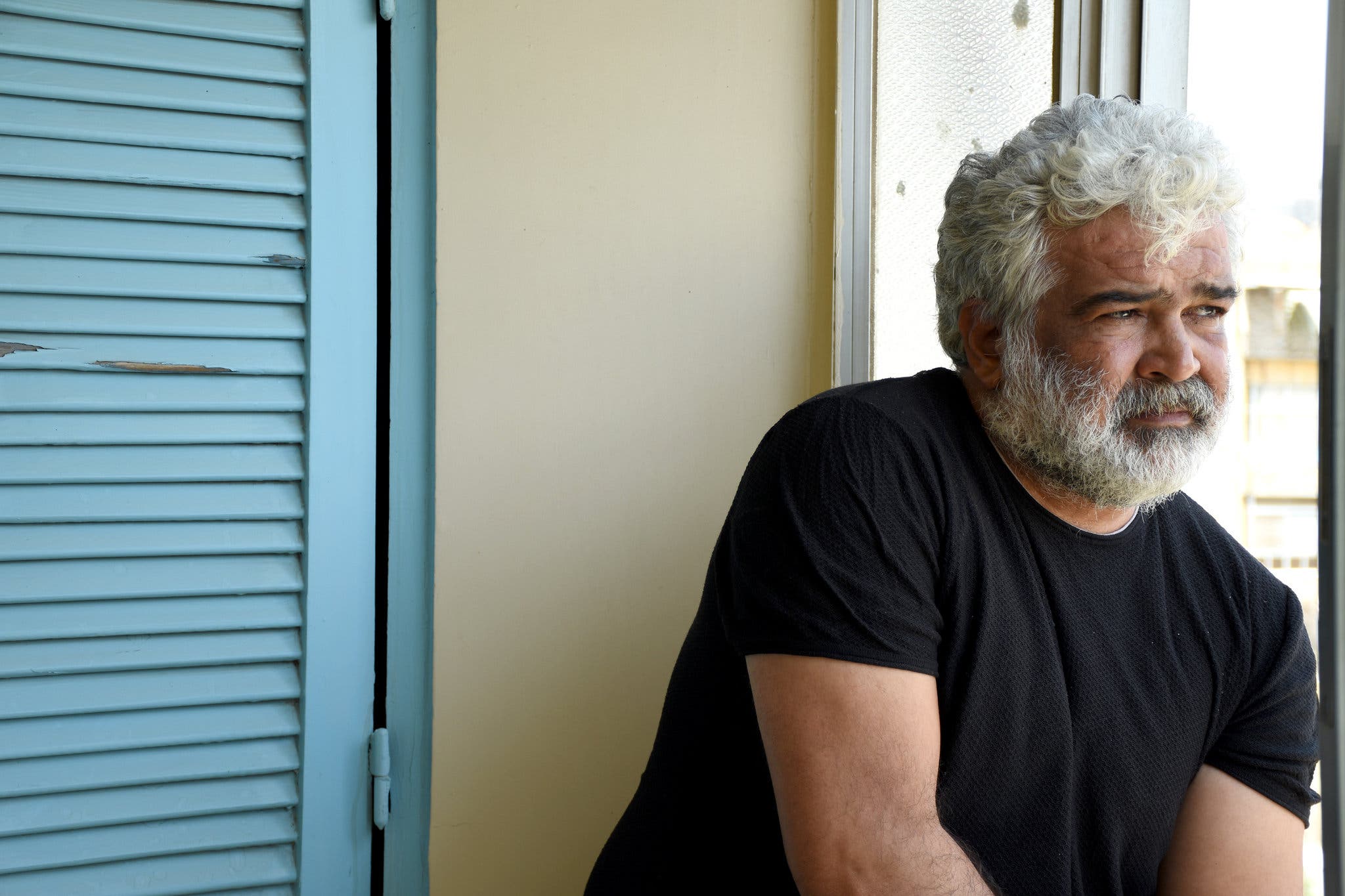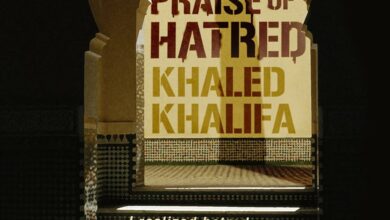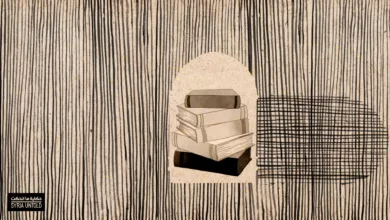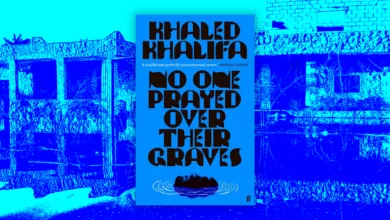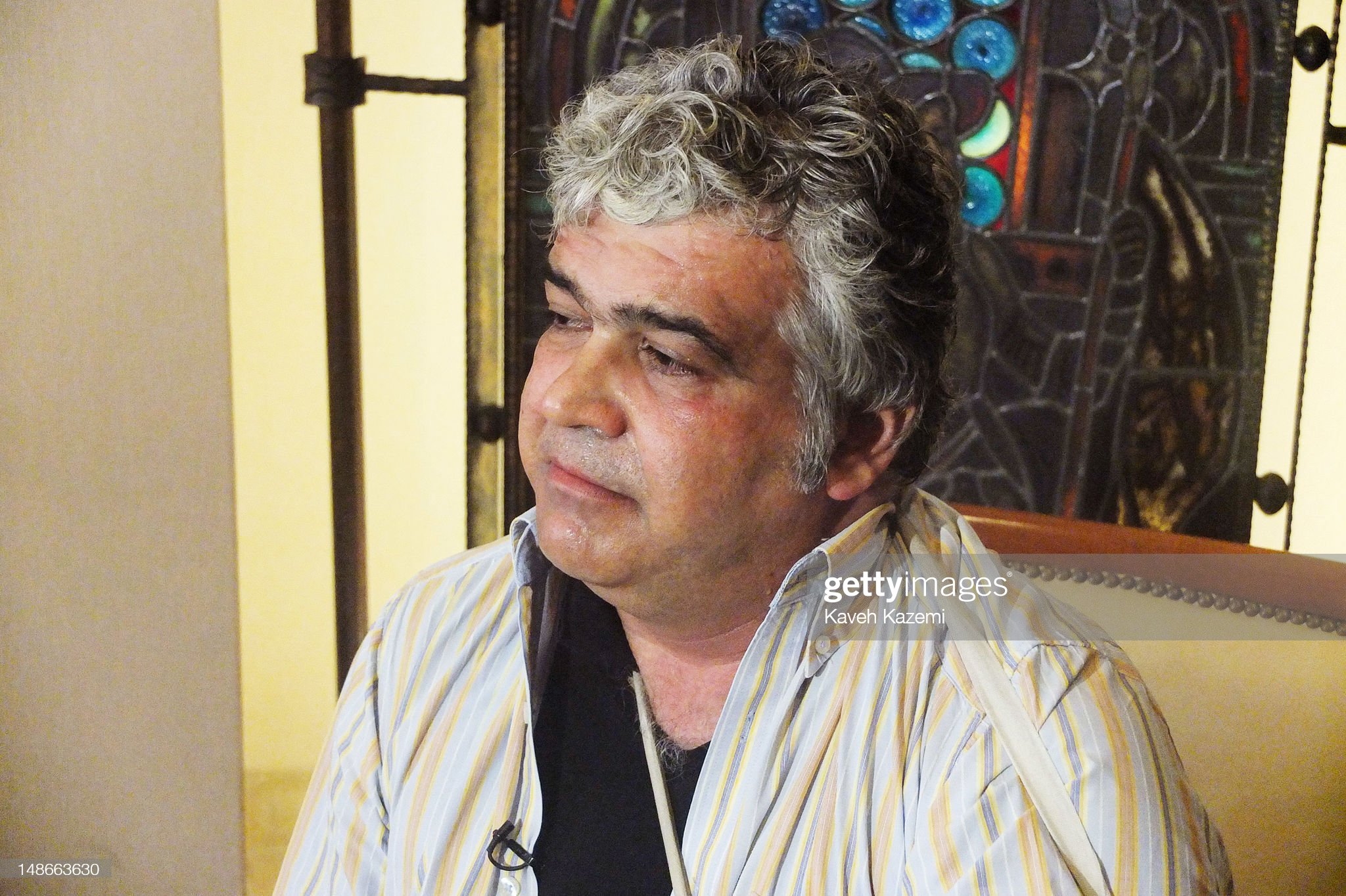BEIRUT: Sitting in a Beirut cafe, Syrian author Khaled Khalifa seems quite cheerful as he discusses his relationship with his novels, though the issues that concern him – fear and the human condition, his country’s revolution and the temptations of success – are fraught.
His latest work, “No Knives in This City’s Kitchens,” won the 2013 Naguib Mahfouz Medal for Literature and was long-listed for the International Prize for the Arab Fiction 2014. Khalifa’s novel explores the hidden life the people of Aleppo created in order to tolerate life under the Baath regime.
“I wanted to write a condensed and deep work that is equal to the great pain I tried to narrate,” Khalifa says. “It was the memory of an entire city. It wasn’t an innocent and spontaneous book. There was a kind of manipulation with language and even in the characters. At one point, I felt I almost lost it because I played a lot.”
It took the novelist six years to write “No Knives,” a four-year spell, followed by two more years of editing and modifications. He later performed “surgery” on the work, deleting much of what he had written initially.
The youngest member of his family, the unnamed narrator of the story was born the same year as the military coup that brought Syria’s Baath Party to power.
Other members of the narrator’s family include Souad, his sickly sister, whom their mother kept separate from society throughout her life out of “shame,” and his gentle uncle Nizar, an ingenious musician and homosexual.
Hailing from an open-minded middle-class family, the mother of the narrator was abandoned by her husband. His rebellious sister Sawsan turns to religion as a means of salvation from her past after her lover deceives her and she betrays her friends to state intelligence.
Khalifa’s characters are purely fictional but he says there are many Syrian people who have undergone similar experiences.
“You discover after writing your book that these characters really exist and there are various versions of them,” he says. “For example, I know a lot of girls who resemble Sawsan but I do not know ‘Sawsan.’ My friends would come and tell me, ‘We know Nizar. He resembles this man and you know him too.’ That is somehow disappointing.”
The story starts with the death of the narrator’s mother and ends with the death of Rasheed, his brother – who escaped Aleppo to join a Salafist group in Baghdad, was captured by U.S. forces and forced to collaborate with them against his friends.
In this highly symbolic novel, birth and death reverberate beyond individual characters, suggesting the rise and demise of new eras. There are two worlds here – the thin political crust on the surface and the fabric of community beneath.
“No one knew Syria for these 40 years,” he says. “It was an anonymous place even to the closest people. To the Lebanese people for example, Syria was a group of symbols: ‘the regime,’ ‘the family,’ ‘the army,’ ‘the intelligence apparatus.’
“But this is not Syria,” he continues. “There is another layer of the country and when people see it, they’re surprised. This hurts me.”
Dismantling the concept of the mob, Khalifa depicts what is really going on in the lives of those who recite chants praising the president and pretend to collaborate with state intelligence.
“The regime thinks it has always been in control,” he says. “The reality is that the regime lived outside the homes of the Syrians because it was unable to offer them anything of value. It only got inside the homes to conduct sabotage.”
The problem with this parallel life is that the Syrian people abruptly discovered they’d lost their lives during this “time out.”
“You pay a high cost when you suddenly learn of that you have nothing in your life,” he says, “that you had no chance to choose because of fear, because of this violence … [The regime] took everything – power, job opportunities, all the options.”
“The novel belongs to this equivocal moment before the revolution,” Khalifa says.
“I had a feeling that things cannot go on this way in Syria, because life had stopped long ago … Something must happen.”
Khalifa, who has also written well-regarded television dramas, says that writing “No Knives” liberated him from the weight of success enjoyed by his novel “In Praise of Hatred.”
“Success can shock the writer,” he confides, “and he would start to think about stuff outside writing, like not losing his position as a writer.
“The experience helped me overcome the barrier or the illusion of the barrier. I have no problem today. I feel like a beginner learning again how to write. I have more freedom and foolishness,” he continues. “I love this feeling.”
Modest, realistic, positive and warm, Khalifa makes no displays of false humility.
He is aware of his talent.
“My optimism in life is built on the people’s capacity to resist,” he says. “This can be very positive and maybe negative because it can be part of the illusion.”
Writing, for Khalifa, is a matter of life and death. “I paid my life to be a writer. I didn’t compromise on that … It was a very early decision. I was 21. Socially valued jobs like medicine … never tempted me. My brother, for example, was a doctor and I used to think how sad and miserable his life must be because [it] is linked to certain social conventions.”
Renowned for dismantling Syria’s politics and society in his fiction, Khalifa wishes he were bolder. “There are a lot of things I am still afraid to write about [at] the social and psychological level. Writing is a constant exercise to breaking the barrier of fear.”
The novelist remains based in Syria despite the civil war there and has a thoughtful perspective on the revolutionary changes sweeping the wider region.
“The Arabs’ … protests were very scarce compared to [those in] Europe and Latin America,” he observes. “The Arabs were always outside the world’s revolutions. To enter history, it seems, you should pay the price …
“The fake stability we had in the region only achieved the interests of mafias. We didn’t achieve citizenship. We didn’t build a reputable university. We didn’t do anything.
“There will be a new form of community once the revolutions are over,” he adds, “because we do not resemble Europe or Latin America … We carry a heavy heritage of ethnicities and religions.”
It isn’t the duty of literature to bear a social burden, merely to be faithful to itself, Khalifa believes. “Writing is only required not to betray … the blood of the people. Writing cannot stop a war but it can preserve its values by creating beauty.”
“No Knives in This City’s Kitchen” is published by Dar al-Ain in Egypt and Al-Adab in Lebanon. The IPAF shortlist will be announced Feb. 10 in Jordan.
Published on The Daily Star here

